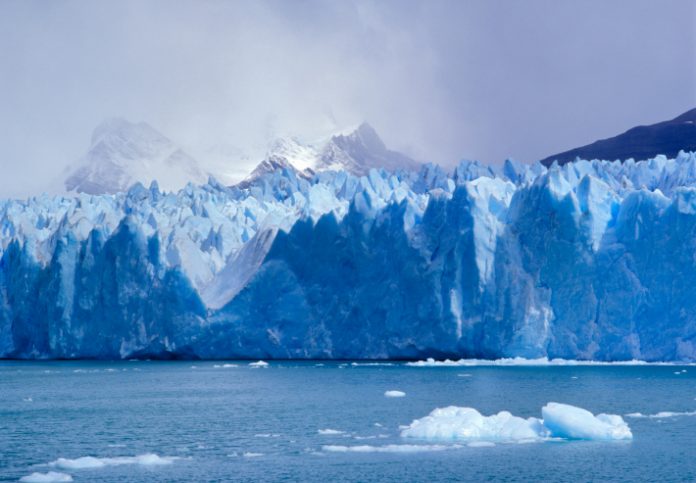Ancient tree stumps found under glaciers in Southeast Iceland are confirmed to be roughly 3,000 years old, RUV reports.
A specialist believes the remarkably well-preserved stumps were part of a massive forest that disappeared after a long period of a warm climate.
It is believed that 3,000 years ago, the forests were much larger, even reaching the highlands. Approximately 500 BC, the climate became colder, and glaciers began to form, destroying parts of the forests.
Old Planet, Changing Climate
The planet has been here billions of years, with mankind only having been here for the last million or so. In that time, the planet has changed climates several times.
With four of the last five warming cycles having occurred before humans and their kin were even around, the causes are solely attributable to Mother Nature and the solar system.
Today, President Biden has called climate change “the number one issue facing humanity”, implying that humanity is more powerful than Mother Nature and the solar system that caused the previous four warming cycles.
The Earth has existed for maybe 4.5 billion years, and now the alarmists will have us believe that because of the small rise in temperature for roughly 150 years, we are doomed.
The World is 87 percent uninhabitable with 70 percent covered by oceans and 17 percent being the mountains and deserts, while the remaining 13 percent of habitable area is up for discussions as to whether humans, animals, plants, Mother Nature, or the solar system have contributed to past and current climate changes.
During the last Ice Age, glaciers covered 32 percent of land. Today, about 10 percent of Earth’s land is covered with glaciers.
Obviously, natural forces greater than humans and fossil fuels caused the previous four warming cycles before humanity appeared, that melted the ice, so can the current humans’ minuscule presence on earth be the cause of the next warming cycle?
Warmer Times
Melting glaciers in Western Canada are revealing tree stumps up to 7,000 years old where the region’s rivers of ice have retreated to a historic minimum. Johannes Koch of The College of Wooster in Ohio found the fresh-looking, intact tree stumps beside retreating glaciers in Garibaldi Provincial Park, about 40 miles north of Vancouver, British Columbia. Radiocarbon dating of the wood from the stumps revealed the wood was far from fresh—some of it dated back to within a few thousand years of the end of the last ice age.
Here in America, Glacier National Park might soon need a new name. The Montana park has 26 named glaciers today, down from 150 in 1850. Those that remain are typically mere remnants of their former frozen selves, before and after images reveal.
All arguments about global warming aside, now is a time of clear retreat by age-old ice packs in many locations around the world. Some retreat just a few inches or feet per year, but others are melting faster than a snow cone in Texas.
Humans have been monitoring temperatures since we have had meteorologists, which is about the last 150 years. On a 24-hour clock, those 150 years in which we have been monitoring temperatures, out of the 4.5 billion years that earth has been around, represent 0.00288th of a second!
Absent Humans Climate Still Changes
Without the existence of human beings or fossil fuels to blame for the previous five warming cycles that melted the ice from the previous five ice ages, we are left with a troublesome question.
Namely, how can the presence of humans and fossil fuels, for “0.00288th of a second” on the “24-hour clock,” on the 13 percent of the earth’s surface that is habitable land mass, have any influence, as compared to all the natural forces that have caused the five previous warming cycles and climate changes over the last 4.5 billion years?
The warming we have had the last 100 years is so small that if we didn’t have meteorologists and climatologists to micromanage the data, we wouldn’t have noticed it at all.
Over the billions of years, ice ages have come and gone, and sea levels have risen and fallen. Temperatures have swung wildly going into and out of the ice ages periods, with virtually no human presence, nor fossil fuel energy usage over those billions of years. Sea animals’ fossils are somewhat common to find in the “mountains” during the weather swings over the billions of years.
The world has gone through numerous cooling and warming cycles, most of which occurred naturally before humans and their kin were even around. Maybe the latest reforestation of earth from the current warming cycle will be the same trees to be buried under the next cooling cycle that Mother Nature or the solar system will provide in the coming centuries.
Ron Stein is an engineer who, drawing upon 25 years of project management and business development experience, launched PTS Advance in 1995. He is an author, engineer, and energy expert who writes frequently on issues of energy and economics.
This article was originally published by CFACT and is reprinted with permission.



























It sound like you are not aware of C14 in diamonds, coal, dinosaur bone and soft tissue. C14 should not be there if they are millions of years old. Something to study. Do have a good day – Paul https://creation.com/dinosaur-soft-tissue